Horse
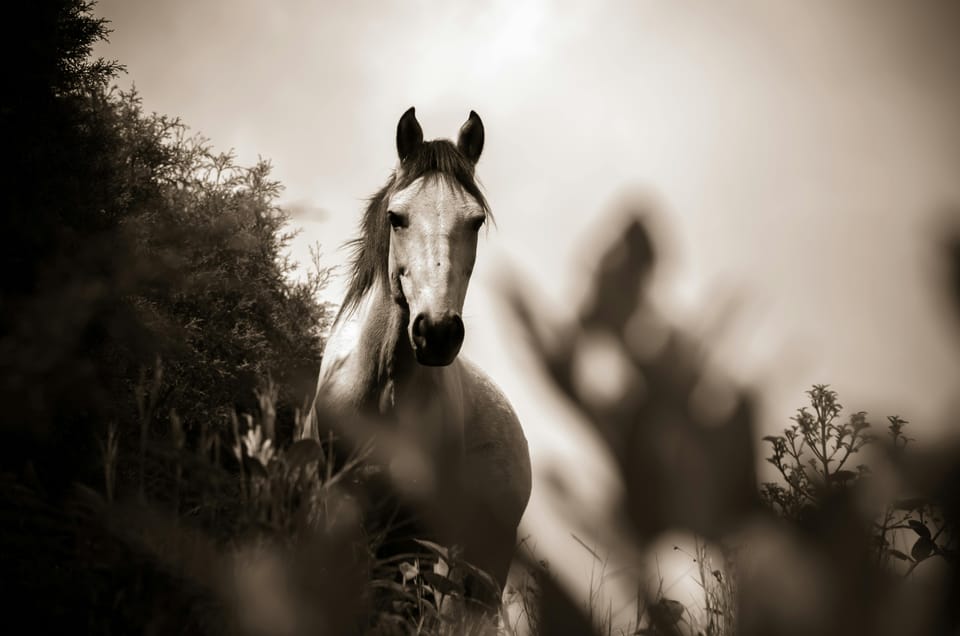
Author’s Note: Horses are strong and mysterious creatures, often symbols of freedom and movement. They both fascinated and frightened me as a child. But in this story, they also represent a dream that was never to be fulfilled.
The following memoir piece is meant to be read as a stand-alone story. That said, it’s also part of a larger collection of short stories I’ll be sharing here on The Violet Storm, with the intention of eventually publishing them as a collection. Think of this story like a single Tarot card — rich with its own meaning and symbolism, yet ultimately part of a fuller spread once the other cards (stories) are revealed. As always, thank you for reading. ~SA
The horse stared at me. He knew something. His neck was arched in cords of muscle, his muzzle white, against the lustrous coal of his coat. Always there, an ever present guardian, in each of our homes. We moved at least once a year, watching mother pack up the horse meant uncertainty and chaos; seeing him hung up again stability.
One summer my father took us to the house he grew up in. I was eight years old with an established litany of allergies and sicknesses. I was used to staying indoors.
“A little fresh air will do him good,” said Dad.
“He’s just recovered from pneumonia. It’s the fresh air I’m worried about.”
An hour-long car ride in the station wagon with no air conditioning, and my head wobbles with pressure, my nose itching from the scent of cut grass. Field after field raced by us, horses grazing or looking blankly beyond us. My three year old sister slept happily in her car seat, while Mother turned around every few minutes to cluck her disapproval at my bleary eyes and running nose.
“Mom’s going to be so excited to see the kids,” said Dad. “I bet she’s got a bunch of pecans for us too.”
“Now that there is what’s called a Paint horse,” my Dad said. “You can tell by the spots. There’s some over in that field over there.” My mother looked out the opposite window, patted her brow with a handkerchief. We sped by acres of crops, rows of tobacco, corn, and soybeans planted in meticulous rows. Weathered barns and aluminum grain silos stood sentry in the pastures in between. The car slowed down as we came to a crossroads. My father flung his arm out of the open driver’s window.
“Now that’s a fine looking horse, yessiree! Look there, Luke! A genuine Arabian stallion! You don’t see many of them around here these days!”
In a meadow all his own stood a large black horse, regal and mysterious. There was a glint in his eyes that challenged me, something indignant, almost angry. I couldn’t maintain contact. I leaned my head against the sticky vinyl seat and slipped into unconsciousness.
I woke when the car slid down the gravel driveway of my Grandma’s lot. A one-storey house peeked out among overgrown bushes and vines that threatened to swallow it whole. Blackberry bushes grew along a wooden fence separating garden from pasture. A stone bird bath guarded a tiny fish pond under a magnolia tree.
“Where’s Grandma?” I asked, looking around, expecting any minute to be engulfed by flabby white arms and the odor of chicken grease.
Dad ran to the door and came back with a letter. “Grandma had to run into town. There’s been an emergency at the post office,” he said. “She left the house open. Said to make ourselves comfortable.”
“I’m taking Ruth inside for a nap,” said Mother, unbuckling Ruth from her car seat. Ruth cooed.
“She’s been asleep the entire car ride,” said Dad.
“Yes, but I haven’t,” said Mother. She walked up the weathered wooden stairs of the porch and into the house. The screen door slammed behind her. I stared at the door, hoping she’d come back for me too.
Dad surveyed the yard with a broad grin. I stood beside the station wagon, dizzy in the power of the sun.
“Well then. I guess it’s just you and me, ” he said.. “Let’s take a look around.”
I closed and opened my eyes, tried to focus on my surroundings. The world was covered in a haze. I lifted one leaden foot, then the other, and followed my father to a small barn. By the time I got there, he’d already opened the double doors and vanished , leaving a dust cloud behind. I sneezed again and again until I lost count. I wiped my hands on the back of my pants. A large butterfly flew above me, distracting me with bright yellow wings. I watched it rise and fall, get carried away by the breeze. Dad came back outside, carrying a saddle on his shoulder, and some bits of metal attached to leather straps. He was smiling under the weight of it all.
“Let’s get you on your first horse!”
On the other side of the warped barbed wire fence, we met a stocky brown horse.
I wished something would wake Mother from her nap, so she could see us, see the horse, and whisk me away. The horse whinnied, and rivulets of fluid ran freely from his nostrils. My head began to pound. I took a step to look at the horse’s tail. Dad reached out and grabbed my shoulder.
“Never approach a horse from behind,” my father said. His face beamed joyfully. He leaned his weight on one leg, then the other, rocking back and forth, almost dancing. I stood still, blinded by the sun, waving at the flies trying to land on my face. The horse snorted, stomped restlessly at the ground. “That’s one way to spook them and you’re likely to get kicked. I knew a man who got kicked so hard, he wasn’t ever right in the head again. It’s foolish to not respect an animal that’s larger than you.”
“Here,” he said as he lifted me up. “Let’s make friends.” He held out an apple. The horse bared its upper lip, showcasing its teeth and gums. Dad flattened his hand and the horse gobbled the apple up.
“Horses are work. You have to brush them down, put shoes on them, make sure the bit fits just so. Sometimes you have to carve stones out their hooves.” He ran his fingers through the horse’s mane. “It’s good to talk to them like you would anybody else.”
“What do I say?”
Dad smiled and looked the horse in the eye.
“Hello there, sir. You are a mighty fine horse.”
“I don’t like the flies. They won’t leave him alone.”
“That's why the Lord gave them tails,” he said.
‘But they can’t reach the ones around their eyes.” I winced, imagining not being able to swat them away.
A large pile of mud plopped to the ground from the horse’s flank. My dad laughed.
“Must be nice to let go whenever you like.”
The stench of manure filled the air, added to the fog of flies. I grimaced.
My dad put the bit and bridle on the horse.
“Doesn’t that hurt?”
“Only if he tries to do something that I don’t want him to do.”
I imagined a bar between my teeth, the scraping of metal on enamel, and shuddered.
“Here,” Dad said. “I’ll hold him still while you get in the saddle.”
He tossed me up on the horse, placed my hand on the horn of the saddle.
My father had the reins in his hand. “Now dig in with your heels a little. Just so he knows you’re there.”
I tried pressing into the horse with my legs, but they wouldn’t cooperate. They dangled useless on each side. The horse breathed and its rib cage moved beneath me. I started to shake. My fingers crept up the mane, slid around his neck as I leaned in.
“I’m sorry,” I said, my voice a whisper.
“Son, are you okay?”
“I want to get down.”
My dad sighed and picked me up. He was frowning, but he tried to smile when I was back on the ground.
“We raised you in the city. You’re just not used to it.”
I looked up at the horse, admired its size and strength. I wanted to take off the saddle, bit and bridle and let it run away,
Grandma arrived in her black Cadillac, dirt clouds trailing behind her. She bounded out of the leather interior with a quickness, clad in a red blouse with a United States flag pin on the lapel, blue pants with sharp creases on the legs, and white Keds. Her hair a stark white cloud adorned with a single artificial rose. She raised her arms in the air, a white patent leather pocketbook swinging from her shoulder. Her blue eyes brightened when they saw my father.
“There’s my baby boy!” she said.
That night cowboys rode their horses into battle while Grandma drank red wine in her recliner. I sat in front of her, much closer to the television than I’d be allowed at home. The cowboys shot their rifles and pistols at Indian braves. I jumped when one of the cowboy’s horses fell to the ground, hit by an arrow. The horse wriggled on its side, its mouth twisted in a pained grimace.
“That’s a clever horse!” said Grandma. “To be able to fall like that and not hurt the stunt rider.”
“How do you know it’s not hurt?” I said.
“All those cowboys know how to work with their animals, especially in the movies,” she said. “Your Daddy used to wear the same outfit. Had a nice pair of chaps and a smart looking cowboy hat too.”
My eyes were glued to the Indians with their long flowing hair, fringed leggings and feathered headbands. It took skill to shoot a bow, throw a tomahawk, ride without saddle, reins, or spurs, but the Indians lost the battle to men with the rifles. It broke my heart to see the guns take them out so quickly; it felt like cheating.
On the car ride home, I dreamed of horses in the wild, galloping in the ocean surf. I clung to the back of an Arabian stallion, larger than any horse I’d ever seen. We raced along the beach, the wind stinging my face, my heart racing behind us, trying to catch up.
Mother noticed my obsession with stories about horses and for my ninth birthday, and she bought me a collectible figurine, a golden Palomino with white mane and tail, cast in fragile plastic resin. I named him Tansel. Soon I had Lady Faye, a chestnut mare with a wild look in her eyes, an Appaloosa named Apple, Morgan the Morgan horse, and Bud the Clydesdale. They became a family. Tansel led them; his calm demeanor inspired trust in the others, and he became quite the peacemaker.. Lady Faye had a fiery temper, but Morgan and Bud still competed for her attentions. Sad Apple languished on the sidelines, unnoticed by the others, lost in her crush on Bud. She and Tansel were best friends.
One day I stole one of my sister’s Barbies from her room, to see if she could ride side saddle on Lady faye. Minutes later, mother came into my room and caught me.
“Dolls are for girls,” she said, taking the Barbie away.
“Why can I have horses and not dolls?”
“It’s perfectly respectable for a boy to have horses. Besides, these are collectibles, not toys.” She placed the horses back on their display shelf above my dresser. I didn’t say anything. I waited until she left to resume the troubled romance between Lady Faye and Morgan. I didn’t need to touch them to hear their voices.
For Christmas, my father built me a barn to house the horses. He painted it red and white and gave it a removable roof with each individual shingle glued on in rows. There were four stalls, so one horse always roamed free. This was usually Tansel. Eventually I made dolls out of styrofoam and wire, covered in fabric with stitched on hair but no eyes or mouth. They lived in the barn and took care of the horses which bored me with their immobile legs. My cousin had a Barbie horse and I coveted its multiple joints. I would have given anything to have my horses bend their knees or lower their heads to feed. Tansel wanted to be able to run as well as stand; he and the others didn’t like having to be tipped over like a teapot to simulate movement.
I didn’t catch on for many years that the drawing of that beautiful, realistically rendered stallion head was by my father. I remember being dumbfounded when my mother told me. She acted as if this had been such an obvious fact, that we’d discussed it before, and she used that to berate me for being oblivious. I remember walking to my room in shock, staring at my drawing board where I created countless science fiction and superhero characters and thinking incredulously, “My father is an artist?” It didn’t compute. I waited for him to get home from work, anxious to discover more.
“Mom says you drew this. Did you?”
Dad smiled. It was unlike any other smile I’d seen him make, his face grew gentle, his eyes far away and soft. He took off his backpack and turned a dining room chair around to face me. He rested his hands on his knees for a brief moment.
“Yes,” he said.
I waited while he untied his work boots and slipped them off.
“Whenever I wasn’t taking care of the animals or working on my parent’s farm I’d draw. I used to sell cantaloupes on a dirt road into town. Horses were my favourite.”
“That’s from real life? That’s not from a photograph?”
“That was a horse on the farm. I drew it around the time I went to college.”
“Why didn’t you become an artist?”
My father looked up and sighed. My eyes followed his, scanning the ceiling for what had grabbed his attention, but there was nothing I could see. His eyes were somewhere above and beyond.
“My father didn’t think I could make a living as an artist so I went to college. Studied psychology, almost went into the military like my brothers, but mama didn’t approve. I went to seminary instead.”
“But you were good,” I said. “Really good.”
He looked at the floor and said, “I haven’t drawn in a long time. Your Grandma wanted a man of God in the family.”
My eyes darted over to my drawing board and my end table overflowing with art supplies.
“Is that why you let me draw? Because your parents didn’t?”
He put his hand on my shoulder. “I encourage your art because it’s what you want to do.” He patted my back. “The things you create come from your imagination. That’s a lot more talent than I had.”
After an early dinner, when I was helping my mother with the dishes, I said, “Dad’s parents didn’t support his art.” Mom placed a stack of plates in the cupboard and shut the door.
“Your Grandma had her heart set on him being a preacher. That’s why he went to Lutheran Seminary.”
“But we’re Baptist,” I said.
“I was raised Baptist. My mother wouldn’t let me marry your father unless he became Baptist too.”
“Nana said that?”
“Yes and your Grandma’s hated me for it ever since.”
“Why wasn’t she mad at Nana instead?”
Mom shrugged. “You’d have to ask them. Though I wouldn’t recommend it, she’d probably deny the whole thing.”
I tried to imagine Grandma and Nana making all of my parent’s decisions for them, even as adults. Would they do the same for me?
I spent more time at my drawing board after that talk. Spent a few days sketching horses. From memory at first, but I kept getting the angles wrong, the legs were too complicated. I found some reference photographs in the pages of a National Geographic magazine, but it was really hard to get all the parts right, especially from different perspectives. Page after page ended up in the wastebasket while I paced around my room, arms in the air. I just didn’t get the appeal. Maybe it was easier to draw them from life, but there weren’t any horses in the city. None of my comics had horses in them. Nobody read Westerns anymore.
I gave up on drawing horses after that. Tossed them in the forgotten file with vehicles and architecture. Went back to designing costumes on male and female body templates I found in a Marvel Comics how to book. The rest of the week, and the week after that, I rededicated myself to creating new costumes, powers and origin stories for dozens of characters. Dad went back to being in the background of things, his somber existence relegated to work and the occasional late dinner. Mother dropped little comment bombs in my path, like, “You’re always hunched over that drawing board. You’d think you were chained to it!” and “You’d have to be an imaginary character to get Luke to talk to you.” I did my best to ignore her, avoided stepping on the land mines.
One night, Mother came to my room, leaned against the door frame and surveyed my room.
“You’re spending too much time drawing when you could be helping around the house,” she said. “It’s like you’re not even in this world.”
I continued to color in the bright blue cape of the superheroine I had created. Beverly Barnes, aka Bluebird, was my newest creation, a true amalgam of current fashion trends and classic superhero costuming. Her feathered domino mask matched her feathered cape, and her baggy pants and vest ensemble ensured she looked on trend. I was especially proud of how I had feathered her hair to match her look, but I was thinking that coloring in her lipstick red was a mistake. It looked too garish, pink would have been better. There was no way to erase the pencil though, I had a habit of bearing down too hard.
“Luke, I’m trying to talk to you. Can you get your head back in this world for one minute?”
I gripped the colored pencil in my fist. My back was to the door. She couldn’t see my expression, but the tension in my neck and shoulders said everything.
“If you could draw some nice landscapes, or lighthouses, anything that people could recognize, that would be something, wouldn’t it? Don’t you want to draw something real?”
I shoved the pencil into my electric pencil sharpener. The whirring sound filled up the room, drowned out her next sentence. I wanted to keep the pencil in there longer, but I didn’t want to waste the lead. Prismacolors weren’t cheap. I brought the pencil back to the paper, silently wishing she’d leave, my jaw tightly clenched.
“Luke! That’s enough! What if I took that drawing board out of here?”
I spun around in my chair, my lip curled, eyes a thin line.
“Why can’t you support what makes me happy?” I gripped the pencil in my fist like a dagger. “You’re as bad as Grandma! You didn’t support Dad either!”
Mother took a half step back out of the door frame.
“That’s not true!” she said, “I was the one who fought for you to have that drawing board, those art supplies.”
“Then let me be alone with them! I do everything else you ask.”
“I certainly don’t treat you like she treated your father.”
“I don’t want to talk to you anymore. Please leave me alone.” I swivelled back around to face the drawing board. The red lipstick on Beverly’s face glared back at me. Definitely a bad choice.
Mother left. The next morning the framed horse was leaning against the wall on the floor outside my room. I hung it in my room next to the drawing board.
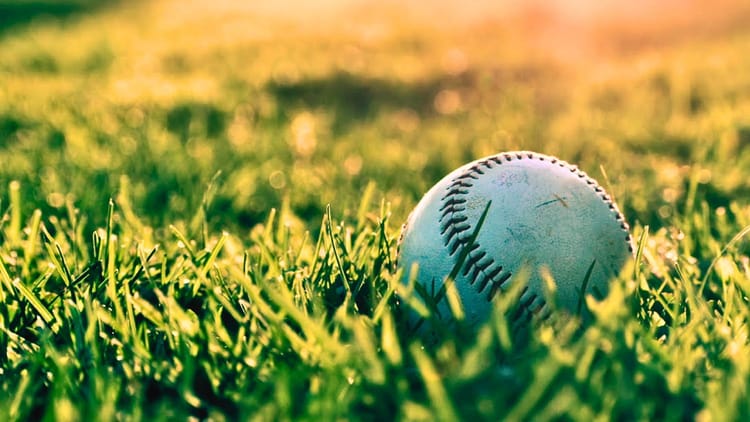
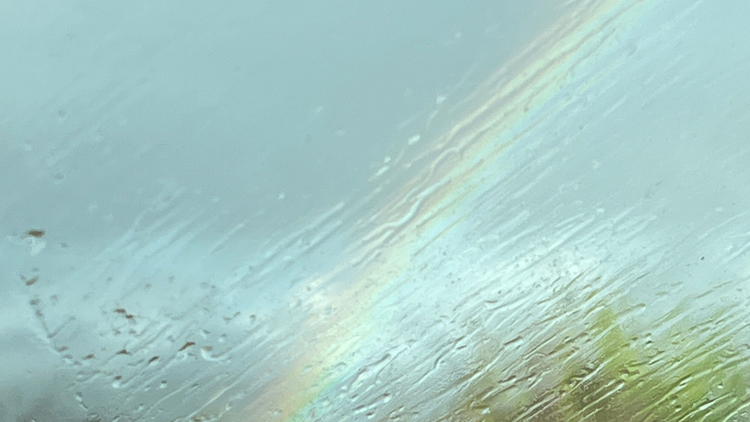
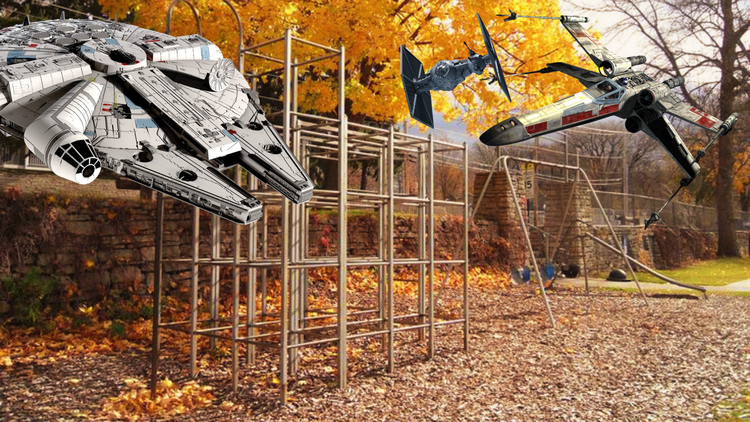
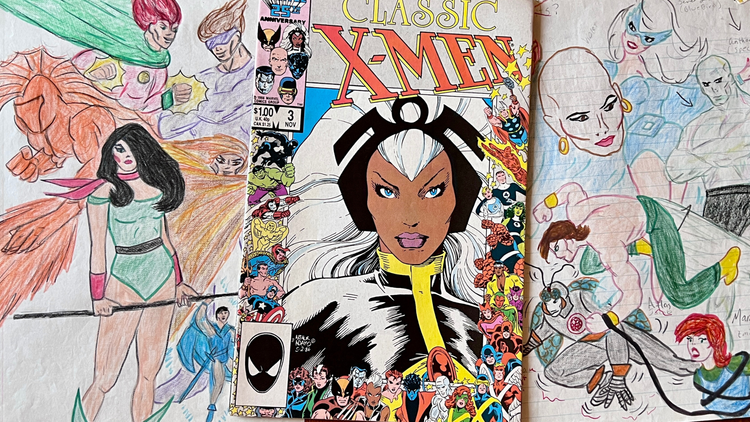
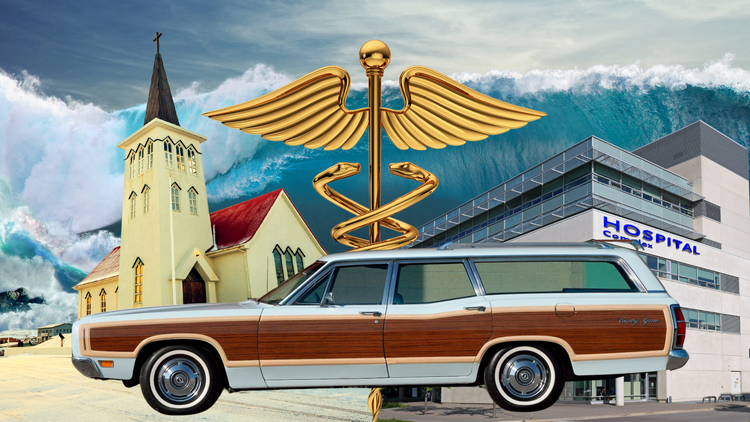
Member discussion